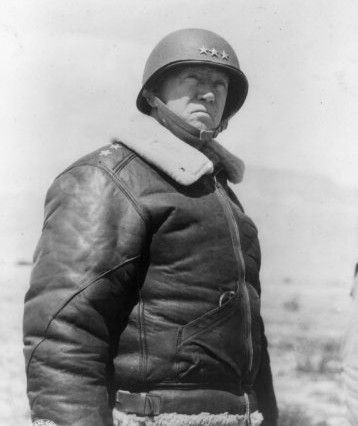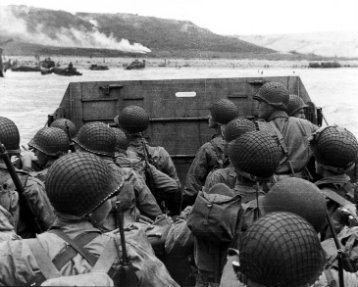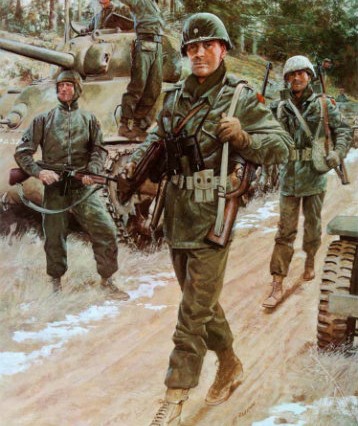How To Use This Discussion Guide
Materials Included | Begin by reading George S. Patton’s Speech to the Third Army on our site or in your copy of What So Proudly We Hail.
Materials for this guide include background information about the author and discussion questions to enhance your understanding and stimulate conversation about the story. In addition, the guide includes a series of short video discussions about the story, conducted by Eliot A. Cohen (Johns Hopkins SAIS) with the editors of the anthology. These seminars help capture the experience of high-level discourse as participants interact and elicit meaning from a classic American text. These videos are meant to raise additional questions and augment discussion, not replace it.
Learning Objectives | Students will be able to:
- Explore the virtue of courage and how it can be cultivated, especially among self-interested citizens oriented toward the pursuit of their own happiness;
- Read closely to determine what the text says explicitly and to make logical inferences from it;
- Cite specific textual evidence when writing or speaking to support conclusions drawn from the text;
- Determine central ideas or themes of a text and analyze their development
- Summarize the key supporting details and ideas;
- Analyze how and why individuals, events, and ideas develop and interact over the course of a text;
- Interpret words and phrases as they are used in a text, including determining technical, connotative, and figurative meanings, and analyze how specific word choices shape meaning or tone;
- Analyze the structure of texts, including how specific sentences, paragraphs, and larger portions of the text (e.g., a section, chapter, scene, or stanza) relate to one another and the whole; and
- Analyze how two or more texts address similar themes or topics to build knowledge or to compare the approaches the authors take.
Common Core State Standards Addressed | Literacy in History/Social Studies:
-
RH.9-10.1, RH.9-10.2, RH.9-10.5, RH.9-10.6, RH.11-12.1, RH.11-12.2, RH.11-12.4, RH.11-12.5, RH.11-12.9
English Language Arts:
- RL.9-10.1, RL.9-10.2, RL.9-10.4, RL.11-12.1, RL.11-12.3, RL.11-12.4
Writing Prompts | Based on Common Core Standards in English Language Arts and Literacy in History/Social Studies:
- How do you encourage men and women to be courageous? After reading “Chamberlain” and Patton’s “Speech to the Third Army,” write an essay that compares Chamberlain’s and Patton’s understandings of courage and leadership and argues for one mode of leadership over the other. Be sure to support your position with evidence from the texts.(Argumentation/Comparison; Task 4)
- Would either of these speeches work today? Could the speakers get away with their high-minded appeals to manliness or national greatness and superiority? Whose speech—if either of them—would be most at home in our modern era?—or are they both simply relics of a bygone past? After reading “Chamberlain” and Patton’s “Speech to the Third Army,” write an essay that compares the approaches taken by Chamberlain and Patton to inspire their men to fight courageously, and argues for one approach over the other. Which speech would work better today? Be sure to support your position with evidence from the texts. (Argumentation/Comparison; Task 4)
- What is the function of Patton’s profanity? What are its effects on the men—and why is it effective? How might these effects contribute to attaining Patton’s overall purpose? After reading Patton’s “Speech to the Third Army,” write an essay that discusses Patton’s use of profanity and evaluates it as a rhetorical strategy. Be sure to support your position with evidence from the text. (Argumentation/Evaluation; Task 6)






Post a Comment